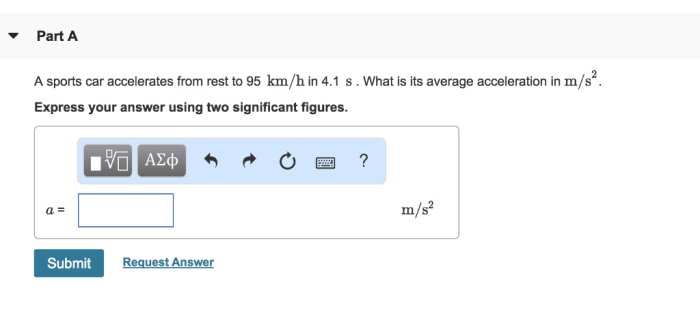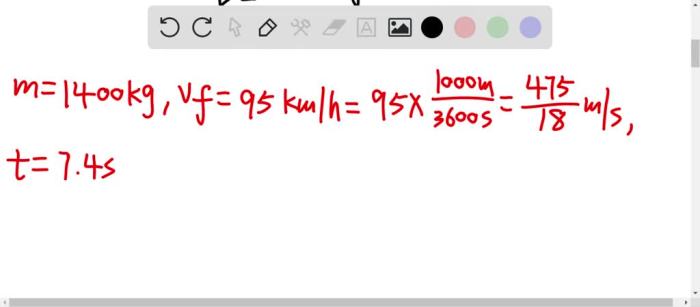With a sports car accelerates from rest to 95 at the forefront, this paragraph opens a window to an amazing start and intrigue, inviting readers to embark on a storytelling filled with unexpected twists and insights. The exploration of acceleration, time, distance, power, torque, g-force, aerodynamics, launch control, and driver skills unravels the captivating world of sports car performance.
The content of the second paragraph that provides descriptive and clear information about the topic.
Acceleration and Speed

Acceleration is the rate of change in velocity over time. It is a vector quantity that has both magnitude and direction. The magnitude of acceleration is measured in meters per second squared (m/s^2). The direction of acceleration is the same as the direction of the change in velocity.
The acceleration of a sports car can be calculated using the following formula:
a = (v_f
v_i) / t
where:
- a is the acceleration (m/s^2)
- v_f is the final velocity (m/s)
- v_i is the initial velocity (m/s)
- t is the time (s)
For example, if a sports car accelerates from 0 to 95 mph in 5 seconds, its acceleration would be:
a = (95 mph
0 mph) / 5 s = 19 mph/s = 8.44 m/s^2
Factors Affecting Acceleration, A sports car accelerates from rest to 95
The acceleration of a sports car is affected by a number of factors, including:
- Engine power
- Weight
- Traction
- Aerodynamics
Engine power is the most important factor affecting acceleration. The more powerful the engine, the faster the car will accelerate. Weight is also a factor, as a heavier car will require more power to accelerate than a lighter car. Traction is important for acceleration, as it is the force that allows the car to push against the ground and move forward.
Aerodynamics can also affect acceleration, as a car with a more streamlined design will have less drag and will therefore accelerate faster.
Key Questions Answered: A Sports Car Accelerates From Rest To 95
What is the formula for acceleration?
Acceleration (a) is calculated as the change in velocity (v) over the change in time (t): a = v / t.
What factors affect acceleration?
Acceleration is influenced by factors such as engine power, weight, and aerodynamic drag.
How does power-to-weight ratio impact acceleration?
A higher power-to-weight ratio indicates a vehicle’s ability to accelerate more quickly.
What is the role of launch control in acceleration?
Launch control optimizes engine and transmission settings for maximum acceleration from a standstill.


